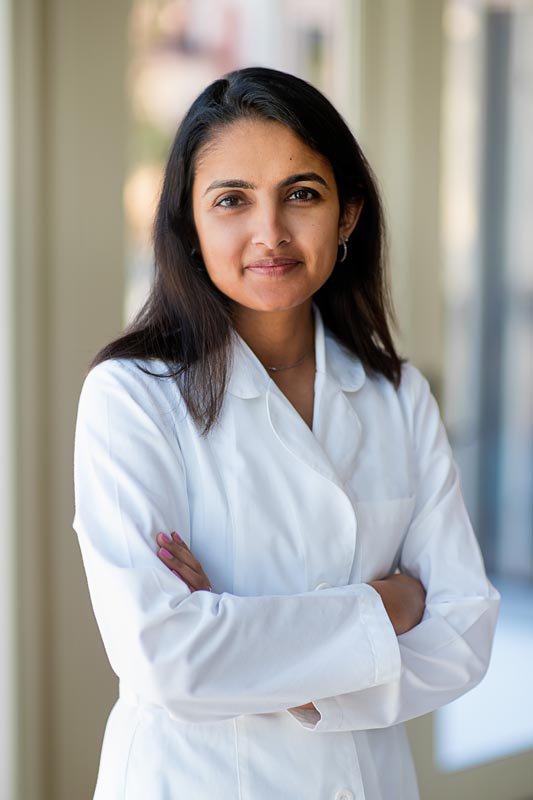
You deserve more out of your yearly mammogram. BLMI, our breast imaging program is run by women caring for women, with a comfortable patient experience that keeps our patients coming back year after year. Our doctors understand that you don't want to wait for your results--they do their best to get results out in less than 24 business hours. We offer:
- digital mammography (digital and 3D)
- breast ultrasound
- DEXA (bone density)
- breast biopsy
- breast MRI (high-field 1.5T)
- ABUS (automated 3D breast ultrasound)
What do I need to do to maintain my breast health?
Commonly asked questions answered by Dr. Mendi
Why do I need routine breast screening such as mammogram and ultrasound?
Breast Cancer affects 1 in 8 women in the United States. According to the American Cancer Society, early-stage breast cancer has a five-year survival rate of 99 percent. Later-stage cancer has a survival rate of 27 percent. Mammograms and ultrasounds allow us to catch breast cancer before it has become too advanced to treat.
Do I still need mammograms if I don't have any symptoms or family history of cancer?
Yes!!! More than 75 percent of women who have breast cancer have no family history. Most breast cancers are asymptomatic. We detect breast cancers on screening mammograms at Bright Light Imaging on a regular basis. Luckily, they are often small enough that they can be treated well.
Does the compression from mammograms cause more breast cancer?
ABSOLUTELY NOT. The compression from mammograms, although somewhat uncomfortable, is very safe!! Many studies have shown women who have screening mammograms are much less likely to die of breast cancer. A recent study showed that women who participated in screening mammography had a 41% less risk of dying from breast cancer within 10 years (Mammography screening reduces rates of advanced and fatal breast cancers: Results in 549,091 women. Stephen W. Duffy MSc, László Tabár MD, et al. First published: 11 May 2020) .
Is the radiation from mammograms too much to make it worth it?
No! A mammogram is safe as long as the facility you go to is certified. Bright Light has been accredited by the ACR (the highest form of accreditation) for mammography for several years.
There is always background radiation in the world that we are exposed to every day. The radiation dose from a mammogram is equal to about 1-2 months of background radiation for the average woman.
Many studies have shown women who have screening mammograms are much less likely to die of breast cancer. A recent study showed that women who participated in screening mammography had a 41% less risk of dying from breast cancer within 10 years (Mammography screening reduces rates of advanced and fatal breast cancers: Results in 549,091 women. Stephen W. Duffy MSc, László Tabár MD, et al. First published: 11 May 2020) .
What is a 3D mammogram?
There are 2 basic types of digital mammograms.
3D MAMMOGRAMS (TOMOSYNTHESIS) is the most advanced type of mammogram. It gives us more detailed pictures of both breasts, allowing us to better distinguish normal breast tissue from a cancer. With 3D mammograms, we are able to detect some cancers more early, and it also decreases false alarms. 3D mammography is more expensive than 2D, but it is most often fully covered by insurance.
2D MAMMOGRAMS are traditional digital mammograms which we have been using for decades. They are safe and effective at detecting breast cancer.
How often do I need a mammogram? There are so many different recommendations.
I know that there is so much confusing information out there. From my perspective, it's a no-brainer. Mammograms save lives. I have personally diagnosed breast cancer in patients ranging in age from 23-95. The American College of Radiology currently recommends mammograms EVERY YEAR FOR ALL WOMEN AGES 40 AND OVER, regardless of history. I whole-heartedly agree with this, and this is what I encourage for all of my patients and my family and friends. This is also what I do for myself.
What else can I do for screening my breasts? What about ultrasound/ABUS?
Great question! I love ultrasound as a supplementary screening tool in women with dense breasts. Ultrasound allows us to catch cancers that mammograms can miss in women with dense breasts. I get screening ultrasounds every year with my mammograms. This can be done either as automated (ABUS) or handheld ultrasound, both with great results. If you have dense breasts, these ultrasounds should be covered by your insurance. Talk with your provider about this option, or you may call us with questions!
Another essential tool is physical breast exams. These should be done by your doctor every year and by you every month. Do you want to know how to examine yourself? CLICK HERE for information, or swing by our office to pick up a card that you can hang in your shower.
I was called back from my screening mammogram for a diagnostic mammogram/ultrasound. What does this mean?
What you are describing is very routine. Screening mammograms are only broad overviews of the breasts. If there is a small area that needs to be seen in more detail, we will ask that you return for more images. This is extremely common but typically no reason for concern. Often the area we need to see turns out to be normal breast tissue or something else that is normal/benign. Less than 1 in 10 women called back for more tests are found to have something concerning. It is, however, important that you return for this testing so that we can make sure that we look at this area to determine if anything needs to be done.
A diagnostic mammogram/ultrasound may also be done if you have a problem with your breast such as a lump, pain, skin changes, nipple discharge. Please be sure to tell your doctor if you notice these or any other changes in your breast.
Here's to your health!
Resham Mendi, MD
Medical Director, Bright Light Medical Imaging
 |
Resham Mendi, M.D.Medical Director
Dr. Resham Mendi is a renowned expert in the field of medical imaging. She is a native of the Chicago area, and completed her undergraduate training Summa Cum Laude at Northwestern University. Dr. Mendi also attended Northwestern University for medical school. She did her residency training at the University of Illinois, and completed fellowship in MRI and advanced imaging. |

